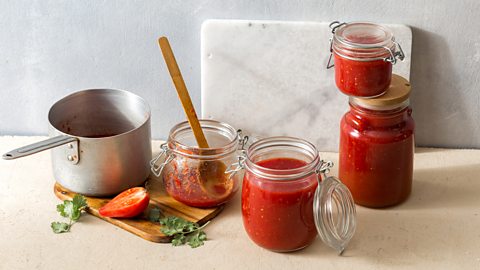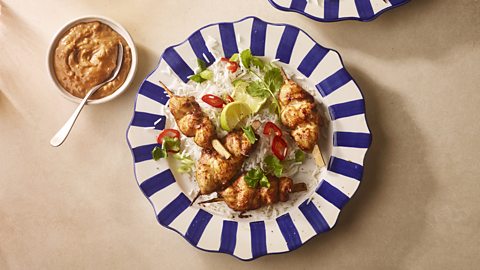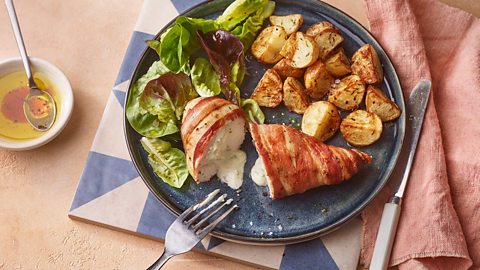How to bake cakes and biscuits without eggs
Whether you’re caught short or have an allergy, it can be mystifying working out how to bake without eggs. But with a little ingenuity, eggless cakes, biscuits, brownies and meringues can be delicious. There are many substitutes, but it’s important to use the right one for the result you want. Our handy guide walks you through.
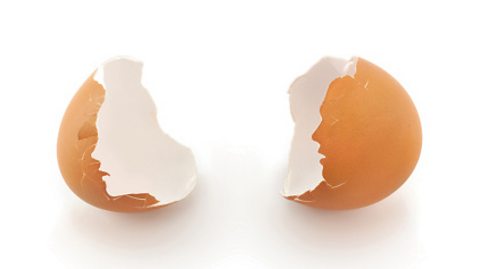
Baking powder + bicarb + vinegar
This is our favourite swap for fluffy cakes. Eggs give bakes structure and lift, and a little extra raising agent plus an activating acid can handle this too. The swap is unnoticeable in small bakes, such as our vegan muffins and vegan chocolate cupcakes. Likewise, it works like a dream in eggless fluffy pancake mix (okay, not strictly a bake!). You can stretch this solution to a big birthday-style cake, such as our eggless chocolate cake and the luscious vegan chocolate peanut butter cake pictured below.
Caution – bakes can be a little dry, and too much raising agent will give a metallic taste. Always sift in bicarbonate of soda so small lumps are evenly distributed. Our eggless lemon drizzle cake gets around any dryness with its post-bake drizzle. Other solutions are to add more milk or yoghurt to the recipe, frost generously, or heap on plenty of whipped cream and fresh fruit.
We don’t recommend a formula for this egg replacement because there are too many variables and the results could be unpleasant. It’s best to use a tested recipe.
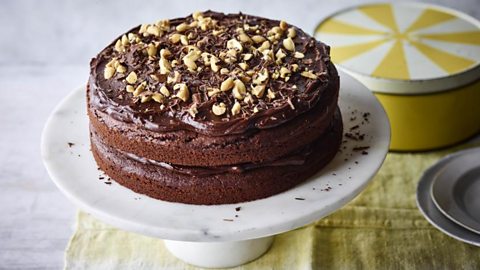
Mashed banana + baking powder
Eggs provide tenderness and moisture, and so does mashed banana! It also has a binding effect. Of course, it does taste of, well, bananas. So an egg-free banana cake is just the thing, as are banana muffins.
There are plenty of egg-free recipes that have been tested. But if you are replacing egg in an existing recipe:
1 egg = ½ banana (mashed and added to wet ingredients) + ¼ teaspoon of baking powder (added to dry ingredients).
Flaxseeds or chia seeds + water
The combination of soaked, ground flaxseeds and water makes an incredible egg substitute because it acts as a binder and locks in moisture. Flaxseeds (or golden linseeds) are sold widely and are fairly inexpensive. They do have a little nutty bitterness, so they’re best used in bakes with spice, chocolate or nuts to complement it. Whole flaxseeds will store for longer than ground so, if you can, grind them with a pestle and mortar or a spice or coffee grinder just before using. Flaxseeds are used in our egg-free brownies and vegan carrot cake.
1 egg = 1 tablespoon of ground flaxseed + 3 tablespoons of water, soaked for 5-10 minutes.
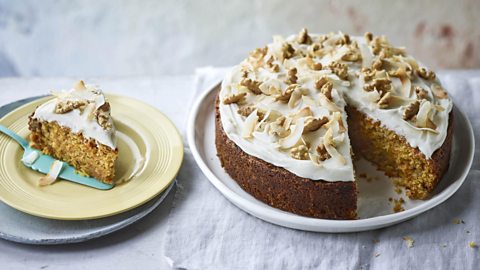
Chia seeds are more expensive than flax, but have less of a distinctive taste. They do show up in a finished cake, but can easily be hidden in a lemon poppyseed, banana or chocolate cake. Some bakers say that chia seeds do not need to be ground, just soaked.
1 egg = ½ tablespoon of chia seeds + 3 tablespoons of water, soaked for 5-10 minutes.
Aquafaba
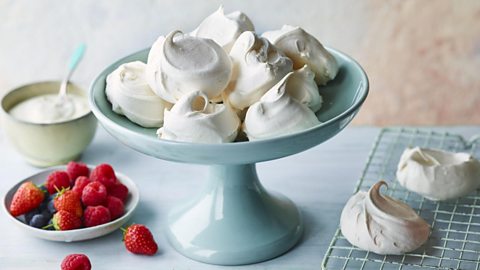
The water from a tin of chickpeas (not salted) makes a versatile egg-white substitute. It whips to a foam that will make vegan meringues that are pretty indistinguishable from traditional ones.
Aquafaba helps bind bakes, as in these chewy-crisp vegan oatmeal raisin cookies. It also adds moisture and chewiness to cookies, such as these egg-free and gluten-free almond cookies, which are a bit like a soft amaretti biscuits. Lightly beaten, it can be used to make vegan French toast too.
1 egg white = 2 tablespoons of aquafaba
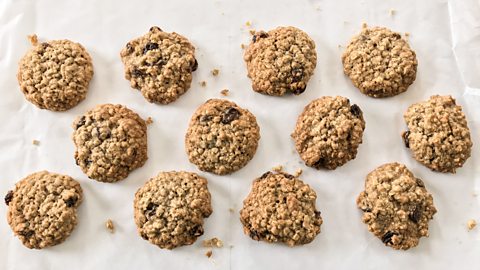
Silken tofu
In baking, blended silken tofu is used in conjunction with extra raising agents and an acidic ingredient such as buttermilk or yoghurt to give a moist, dense result that suits pound cakes, brownies or moist chocolate cakes. Because this balance is tricky to achieve, we don't recommend a formula for substituting silken tofu for eggs, but seek out a tested recipe.
Silken tofu also works in unbaked sweet treats, for instance in mousses and puddings like this vegan chocolate mousse, which could double as a pie filling.
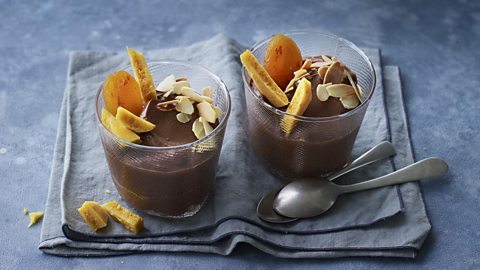
Naturally egg-free bakes
Don’t forget that you can make all of these without eggs:
- shortbread
- flapjacks
- no-bake cheesecake
- rocky road (although if you’re allergic, be aware there are eggs in the sweets)
- crispy cakes and
- any number of pie recipes with our egg-free pastry
